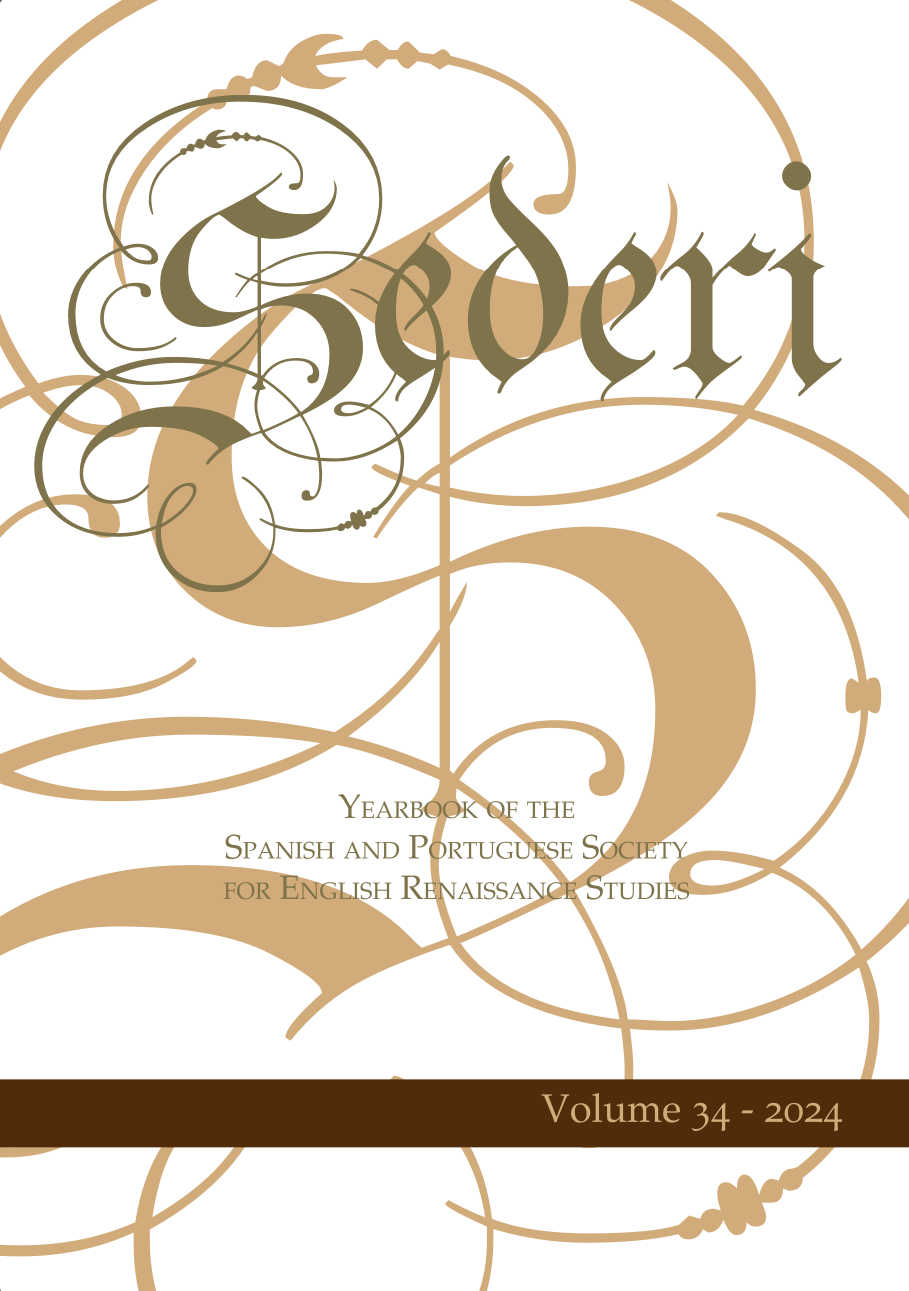Una adaptación poco convencional: el Romeo y Julieta (1858) de Ángel María Dacarrete
Ángel María Dacarrete’s Julieta y Romeo (1858)
DOI:
https://doi.org/10.34136/sederi.2024.4Palabras clave:
Spain, reception, criticism, Shakespeare, Romeo and JulietResumen
El artículo examina Julieta y Romeo (1858), una adaptación poco convencional de Romeo y Julieta escrita por Ángel María Dacarrete. La obra no ha recibido atención de la crítica desde los estudios pioneros de Alfonso Par sobre Shakespeare en España (publicados en 1936 y 1940). Se centra en las innovaciones introducidas por Dacarrete, la puesta en escena y la consecuente reacción adversa de la crítica por la supuesta falta de originalidad y deplorable inmoralidad. Argumentamos que, en una época en la que Shakespeare era prácticamente desconocido, adaptar era más beneficioso que perjudicial para la recepción de Shakespeare en España.
Descargas
Descargas
Publicado
Número
Sección
Licencia
The copyright holder of the published contributions is SEDERI.The hardcopy and an open-access version of the journal will be published simultaneously. The issues will be available online in the SEDERI website (http://www.sederi.org/yearbook/) and other repositories that have signed an agreement with SEDERI.
The authors who publish with this journal agree to the following terms:
a) SEDERI retains copyright of the essay.
b) If the author wishes to republish or rewrite the essay for another journal, or include the essay published in SEDERI in their personal repositories, or in any other way, they should contact the editors to obtain permission to do so. This will entail citing SEDERI as the original source and sending the editors a copy of the new version, or the link to the website, in case of online publishing.
The author(s) hereby warrant(s) that:
a) The essay submitted for publication is an original creation and does not infringe any copyright or property right of another journal, author or publisher.
b) The essay submitted for publication has not been previously published, whole or in part, and is not being considered for publication elsewhere.
c) Written permission has been obtained for any material from other sources included in the essay submitted for publication.
Datos de los fondos
-
Ministerio de Ciencia, Innovación y Universidades
Números de la subvención PGC2018-094427-B-I00




